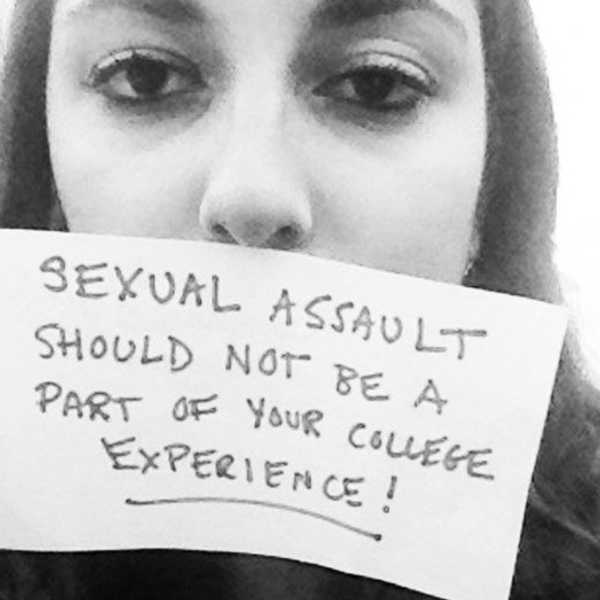Last week, Lady GaGa released a new song “Til It Happens to You”: a powerful ballad describing the trauma of sexual assault. A rape survivor herself, Gaga has been quite vocal on this issue, and is using her platform to create more awareness. She has partnered with The Hunting Ground, a documentary about sexual violence on college campuses, to donate proceeds from the song to survivors of sexual assault. Accompanied by a graphic and gripping music video, the song has drawn attention to some disturbing statistics.
The video was released on the heels of a study done by the Association of American Universities on sexual assault on college campuses. The results are alarming. Almost 12 percent of student respondents reported experiencing nonconsensual sexual misconduct. Of those victims, less than a fourth actually reported the incident to a campus official. These are numbers that need to change.
You’ve heard these statistics before. Maybe you sat through a presentation about it or completed an online course before school. Maybe you saw it on a TV commercial or read about it in an article. Maybe you haven’t given much thought to it before since it hasn’t happened to you. But the victims are not just data figures or actors in a music video. They are your friends, classmates, and roommates. But too often, their voices have been silenced.
According to the AAU Campus survey on sexual assault, the most common reason for not reporting incidents is that it was “not considered serious enough”. Others claimed that they did not speak up out of shame and fear, or they simply did not think anything would be done about it. Instead of being met with empathy and support, victims are often shamed into staying quiet.
In the song, Gaga sings “You tell me…you gotta get up and move on/Tell me, how the hell could you talk?”, “Til it happens to you, you don’t know how it feels”. You can hear the pain in her voice as she belts out these lyrics, recalling her own experience with rape at the age of 19. Like her, many other survivors have been told to “get over it”, or even blamed for their own assault. It is this type of treatment, this utter disregard for victims’ emotional well-being, that discourages others from speaking out.
What I found to be most important about the “Til It Happens To You” video was not the violent scenes of rape, but the aftermath. The pain, isolation, confusion, and shame felt by the survivors was depicted honestly and delicately. The video ended on a more positive note, with the survivors regaining their dignity and finding support in their friendships. Overall, the message is one of comfort, understanding, and solidarity.
But a music video can only do so much. Sexual violence and consent is an issue that will continue to affect our college experience unless we do something about it. This is a conversation that we cannot shy away from anymore. A song may not be able to change the world, but I hope that we can at least take this as a call to action, to drive change in our own communities.
We need to make our college campuses a safe environment for everyone. We need to discuss consent until it is engrained in our minds. We need to look out for each other until it becomes an instinct. We need to protect victims instead of blaming them. Let’s ask them “how are you feeling?” instead of “what were you wearing?” Let’s create an environment that values justice and is conducive to compassion. Let’s make it clear that sexual assault is unacceptable. We need to do better, because we deserve better.




















